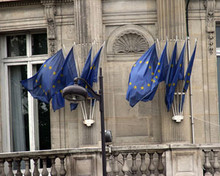
The ruling is part of an appeal victory for Mirror Group Newspapers (MGN), which went to the ECHR after it was forced to pay £500,000 in costs to the model Naomi Campbell, who successfully sued the MGN newspaper Daily Mirror for breach of privacy in 2001.
The ECHR ruled today that the recovery of success fees in the case, which were up to 100 per cent of base rates, was "disproportionate having regard to the legitimate aims sought to be achieved and exceeded even the broad margin of appreciation accorded to the Government in such matters."
Campbell was represented by law firm Schillings, which took on her case on a conditional fee agreement (CFA), or "no-win-no-fee basis". The CFA agreement entitled Schillings to charge £850,000 in costs for two appeals to the House of Lords in the case, of which £365,000 represented success fees.
MGN reached an agreement with Schillings to pay just £500,000, after which the balance of success fees and base costs was indeterminate, but initial success fees equalled 95 per cent and 100 per cent of base rates.
While today's judgement does not challenge CFA agreements, it is likely to have a significant impact on the ability of law firms to claim success fees in similar cases.
A spokesman for MGN said today that the judgement should encourage the coalition government to abolish success fees altogether.
"This has been a long hard fight on the success fee in this case, but we have been proved right. Not only that, but the whole system of CFAs with success fees has been found by the Court to be flawed. This judgment should increase pressure on the Coalition Government to abolish the recovery of such fees from defendants and we look forward to that happening in the near future. We are disappointed to have lost the breach of confidence claim on a story which everyone agrees was in the public interest and which we have fought to defend for 10 years."
Joint submissions were made to the ECHR in the case by UK campaign groups concerned about the effect of high costs in libel and defamation cases, including Open Society Justice Initiative, Media Legal Defence Initiative, Index on Censorship, the English PEN, Global Witness and Human Rights Watch.
According to today's judgement, the submissions claimed that the case "raised an important issue as to the chilling effect of high costs in defamation proceedings on NGOs and small media organisations with small budgets, which organisations were often involved in investigative reporting and dissemination of information on issues of significant public interest."
Jo Glanville, editor of Index on Censorship, said today:
"This is a resounding triumph, spelling the end of success fees in defamation and privacy cases, one of the most serious chilling effects on freedom of expression in the UK."
The ECHR also voted by six to one that a previous House of Lords judgement in favour of Campbell, which upholds the finding that the Daily Mirror breached her privacy in publishing images of her leaving a drug rehabilitation meeting, does not violate her right to free expression.
Neither Mirror Group Newspapers nor Schillings have yet responded to a request for comment.
PDF judgement published by Index on Censorship.
Image by quinn.anya on Flickr Some rights reserved.
Related articles:
Press outrage over privacy law is both misconcieved and misdirected.
Free daily newsletter
If you like our news and feature articles, you can sign up to receive our free daily (Mon-Fri) email newsletter (mobile friendly).
Related articles
- Two UK investigative outlets are crowdfunding £40k to fight SLAPP
- Media law in the social media age: how much do you know?
- Times Newspapers ordered to pay £60k damages in article update dispute
- Leading panel discusses future of investigative journalism
- Queen's Speech: Libel law reform will be introduced











